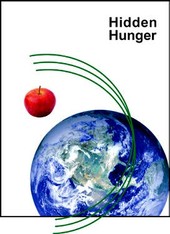
Parallel Session at the Hidden Hunger Congress
Transdisciplinary research for food and nutrition security: Chances and challenges
Date: Tuesday, March 21, 2017
Time: 2:00-4:00 pm
Location: Mövenpick Hotel Stuttgart, Room: Sion
The Sustainable Development Goals aim to end hunger and all forms of malnutrition by 2030. But even assuming very strong political will, the ambitious goal of increasing food production in quantity and quality for all is not easy to reach: climate change, scarce natural resources, volatile markets, global population growth and changes in eating habits are some of the main hurdles.
Food and nutrition insecurity has been sometimes described as a “wicked problem”. Wicked problems are defined as impossible to solve because of the range of complex interacting influences and effects; the influence of human values in all their range; and the constantly changing conditions in which the problem exists.
Wicked problems transcend the resources of any single discipline and are in the focus of contemporary transdisciplinary work. Transdisciplinarity allows us to gain a better understanding of the complex contexts, actions and decisions that determine socioecological systems, and to develop organizational, social and technological innovations that are fitted to the given situation.
Research conducted with relevant stakeholders also makes it possible to better capture questions and solutions that fit to the needs of affected groups, such as the poor and marginalized.

The need to combine the knowledge of different stakeholders is also being more and more acknowledged by research funding institutions, such as the European Union that calls for a multi actor approach in many of its research initiatives. The different actors should have a clear role from the planning of work, the experiments, their execution up to the dissemination of results and the possible demonstration phase. Knowledge exchange activities help to generate innovative solutions that are more likely to be applied thanks to the co-creation of knowledge and the generation of co-ownership for eventual results. Solutions promise to be more comprehensive concerning the complexity and more adapted for the later use.
But although chances of integrating different knowledge systems might be obvious, its implementation remains a challenge .
The objectives of this parallel event are to:
- give an overview on the principles and core characteristics of transdisciplinary research, the approaches and methods
- dialogue on opportunities for practice partners, decision makers and implications for researchers
- showcase examples of multi-actor projects
- foster an exchange of views on how to best implement and encourage participants to engage in transdisciplinary research.
Keynote:
Prof. Dr. Andrea Knierim: Transdisciplinary methods and approaches
Panel discussion:
Hanns-Christoph Eiden: Multi stakeholder approaches for wicked problems in the field of food and nutrition security - the view of national and international funding agencies
Irmgard Jordan: Transdisciplinary research projects for nutrition security - experiences and requirements of universities
Stineke Oenema: Interdisciplinary research feeding for cross sectoral policy development
Flavio Valente: User led research, the perspective from civil society
Chair and facilitation:
Carolin Callenius